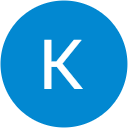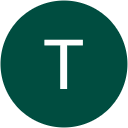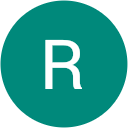Overview
Under the Energy Employees’ Occupational Illness Compensation Program Act (EEOICPA), employees of Department of Energy facilities, atomic weapons employers, or beryllium vendors who develop one of the covered cancers or illnesses may be entitled to up to $400,000 in compensation, as well as medical benefits, from the U.S. Department of Labor. Under the EEOICPA, medical benefits include “services, appliances, and supplies prescribed or recommended by a qualified physician” which are likely to “cure, give relief to, or reduce the degree or the period of the accepted illness.” 42 U.S.C. § 7384t(a) (2000). These services often include home health aide services and in-home skilled nursing care as well as the rental or purchase of Durable Medical Equipment (DME). DME often includes hospital beds, wheelchairs, and other equipment used in the home to aid in better quality of living.
Once a claim for an “accepted” illness is filed and approved with the U.S. Department of Labor under either Part B or Part E of the EEOICPA, a claimant is entitled to reimbursement of his or her medical expenses directly relating to that accepted illness. Before a claimant can receive these medical benefits, including services such as home health care, the expenses must first be authorized by the Division of Energy Employees Occupational Illness Compensation (DEEOIC). Prior to obtaining such services, the claimant’s DEEOIC District Office Claims Examiner must pre-approve the services, as stated in Division of Energy Employees Occupational Illness Compensation, U.S. Department of Labor, “Home Health Care Services and the EEOICPA,” available here. The claimant must present medical evidence from a treating physician confirming the claimant’s need for care.
The treating physician must supply a “Plan of Care,” which is a letter of medical necessity or a written explanation of the care required by the claimant. The “Plan of Care” must describe the level of care required (i.e. skilled nursing care or home health aide care), the frequency of care required (i.e. the number of hours per day), and the time period for which the claimant will require home health care. Id. Once a claimant’s home health care is approved by the DEEOIC, the claimant may choose any licensed medical provider to provide medical assistance. While some medical providers are enrolled in the Energy Employees Occupational Illness Compensation Program (EEOICP) and therefore are paid for their services directly by the DEEOIC, if a claimant chooses a provider that is not enrolled, the claimant can seek reimbursement for his or her expenses by filing a Form OWCP-915 with the U.S. Department of Labor. To determine if a provider is enrolled in the EEOICP, a medical provider database is provided here.
What Benefits are Covered?
Once a claimant is approved for medical benefits under the EEOICPA, the following benefits are covered:
- Prescription drugs
- Doctor co-pays, if applicable (co-pays are no longer required once medical care is approved)
- Medical travel
- Oxygen supplies
- Home health care
- Durable medical equipment (DME)
- Housing modifications
- Vehicle purchase
- Hospice care
- Organ and stem cell transplant
- Nursing home
- Assisted living
- Extended care facilities
- Medical alert systems
- Health facility and spa membership
- Chiropractic services
- Illness screening service
- Home exercise equipment
- Psychiatric treatment
Nuclear Workers Institute of America, EEOICPA Health Benefits, available here.
To be reimbursable under the EEOICPA, medical assistance must be furnished by medical officers, hospitals, and physicians that are designated or approved under the Program. 42 U.S.C. § 7384t(b). In addition to the above medical benefits, “personal care” services, whether or not those include medical services, are reimbursable under the EEOICPA as long as they are deemed medically necessary and are provided by home health aides, licensed practical nurses, or similarly trained individuals. 20 C.F.R. § 30.403 (2012). Personal care services include assistance with housekeeping, meal preparation, grooming, bathing, and etcetera. Many family members seek to assist with the personal care of the claimant. The family member must be trained and certified in order to make services reimbursable under the EEOICPA. Certain health care providers can assist with the training necessary for family members to obtain certifications.
Issues that Claimants Face
One of the biggest issues that claimants face in obtaining reimbursement for medical services under the EEOICPA is the requirement that the services be reauthorized every six months. Initial approval for medical services requires that the physician responsible for treating a claimant for an accepted illness submit a “Plan of Care,” as stated in Division of Energy Employees Occupational Illness Compensation, U.S. Department of Labor, “Home Health Care Services and the EEOICPA,” available here. The “Plan of Care” includes a letter of medical necessity or an explanation of the care needed to treat the accepted illness. Id. In addition, a claimant must have received a recent physical examination, defined as “a face-to-face encounter between the requesting physician and the DEEOIC approved patient, within 60 days prior to the submission of a home health care authorization request.” Following the physical examination, the physician must submit a detailed report that documents the results of the examination. To obtain reauthorization every six months, the claimant must submit updated medical information and a new face-to-face evaluation within sixty days of reauthorization. Failure to do so results in the denial of the reauthorization and the ineligibility of the claimant to obtain reimbursement for his or her medical expenses, including the rental or purchase price of DME. This places a burden on claimants to follow a strict timeline and attend frequent doctor’s appointments in order to retain medical benefits under the EEOICPA. It is not unusual for a primary physician to become impatient with these requirements. It is sometimes useful to have a physician who has experience with the EEOICP and is willing to write the necessary reports every six months.
A second issue that arises is the personal care of a claimant by a family member. As previously stated, personal care services are reimbursable so long as provided by a home health aide, licensed practical nurse, or a similarly trained individual. 20 C.F.R. § 30.403. Typically, family members are not trained in satisfaction of the regulations and therefore, cannot be paid for providing care. While the regulations still allow a trained individual to provide personal care, often it is preferable for a claimant to be cared for by a family member, typically a spouse or a child. Because a family member that has not been trained cannot be paid for their services, that often raises additional financial issues. Some home health care providers, such as Four Corners have addressed this issue by providing training to family members of claimants. This allows family members to provide the necessary care to a claimant while getting paid for it, lessening the burden on claimants and their families as well as home health care providers.
To address some of these issues, the Office of Workers’ Compensation Programs (OWCP), which is responsible for administering the EEOICP, is set to publish proposed regulations in April 2015. The regulations will focus on enhancing the OWCP’s ability to efficiently provide appropriate medical care for beneficiaries, explaining the increased automation of the medical authorization and billing process, and modernizing the process that OWCP uses to investigate whether medical providers are engaging in appropriate activity and the steps it takes to exclude those medical providers in the event that they engage in harmful activity.
Medical Providers Enrolled in the EEOICP
Medical providers enrolled in the EEOICP are paid directly by the DEEOIC for their services, whereas those providers that are not enrolled in the EEOICP must be paid by the claimant, who may then seek reimbursement for his or her medical expenses by filing an OWCP-915 Form with the Department of Labor. Some of the home health care providers enrolled under the EEOICP include
-Four Corners
–United Energy Workers Health Care
Many of these home health care companies provide free in-home nursing care to eligible claimants, including health status assessments, assessments of the claimant’s ability to carry out typical daily activities, communication with the claimant’s physician and pharmacy, and assistance with tasks of daily living, such as bathing, walking, and meal preparation. In addition, one provider in particular, Four Corners, provides training to family members so that they can become certified and provide personal care to the claimant.
***
To learn more about medical benefits under the EEOICPA, please contact Hugh Stephens of Stephens & Stephens, LLP at (716) 852-7590, (716) 208-3525, or via email at hstephens@stephensstephens.com. You can also learn more by visiting our website at www.stephensstephens.com.

















